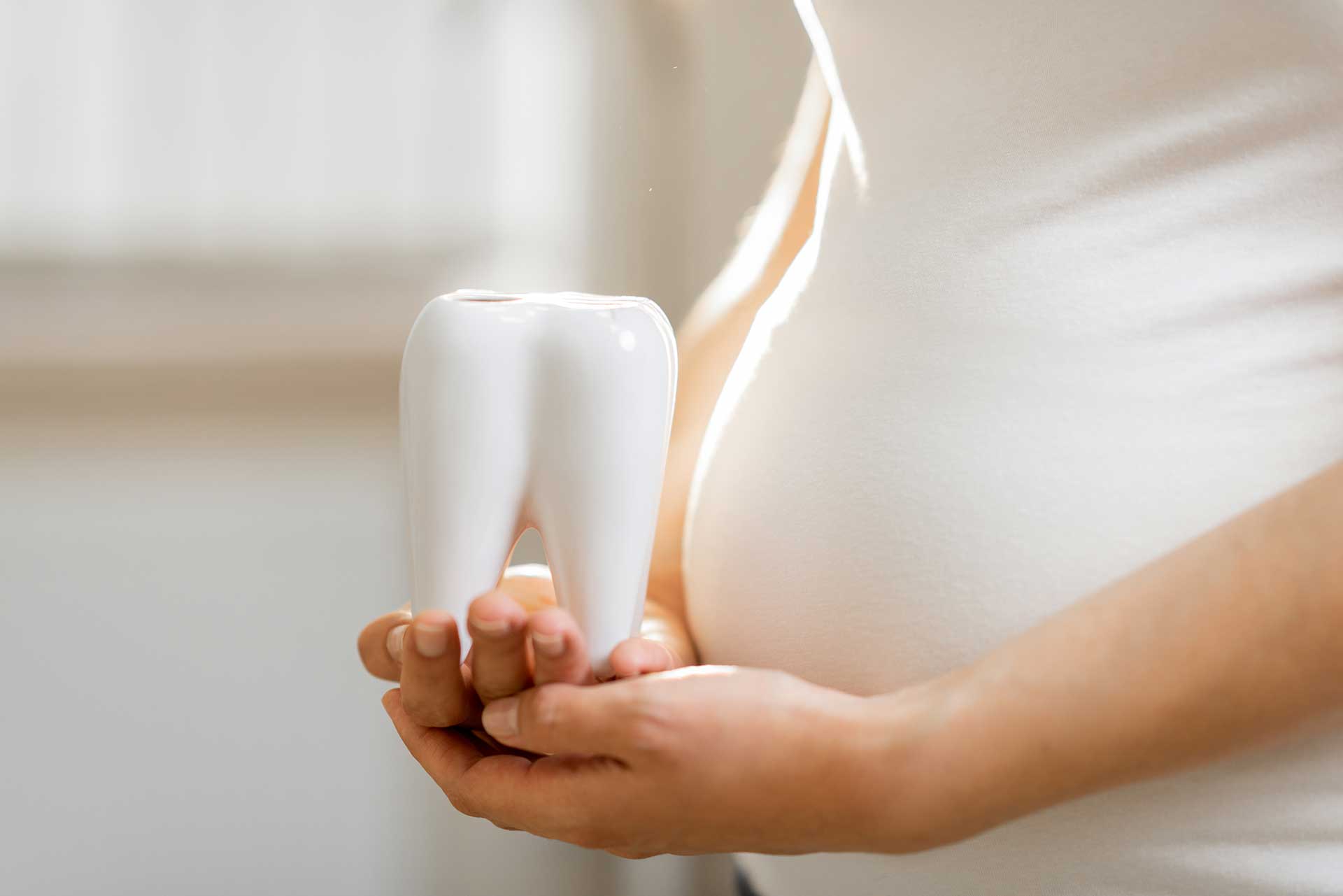Hormonal changes are a natural part of life, but they can have a significant impact on your dental health. Two life stages where hormonal fluctuations play a crucial role are pregnancy and menopause. In this blog, we'll explore how these hormonal changes affect your oral health and what you can do to maintain a healthy smile throughout these life transitions.
Pregnancy and Dental Health
Pregnancy Gingivitis
Hormonal changes during pregnancy can lead to an increased risk of gingivitis, a common gum disease. This condition, known as pregnancy gingivitis, can cause gums to become red, swollen, and prone to bleeding. Maintaining good oral hygiene practices, such as regular brushing and flossing, is crucial to prevent and manage this condition.
Pregnancy Tumors
Some pregnant individuals may develop small, non-cancerous growths on their gums called pregnancy tumors. While these tumors are typically harmless, they can be uncomfortable. Consult your dentist for guidance on managing them.
Increased Risk of Tooth Decay
During pregnancy, cravings for sugary foods and morning sickness can increase the risk of tooth decay. It's essential to maintain a balanced diet and rinse your mouth with water after vomiting to reduce the impact of stomach acids on your teeth.
Hormonal Changes and Dental Procedures
If you need dental procedures during pregnancy, it's important to inform your dentist about your pregnancy. Some treatments, like X-rays and certain medications, may need to be postponed or adjusted to ensure the safety of both you and your baby.
Dental Care Recommendations during Pregnancy
To maintain good dental health during pregnancy, follow these recommendations:
- Attend regular dental check-ups.
- Continue brushing and flossing diligently.
- If morning sickness hinders brushing, rinse your mouth with water or fluoride mouthwash after nausea.
- If you experience tooth sensitivity, consult your dentist for advice on suitable toothpaste.
- Maintain a balanced diet while minimizing sugary and acidic foods and drinks.

Menopause and Dental Health
Dry Mouth
Menopause can lead to a condition called dry mouth or xerostomia, where reduced saliva production can result in discomfort and an increased risk of tooth decay. Drinking water frequently, using sugar-free gum or lozenges, and discussing artificial saliva options with your dentist can help alleviate dry mouth symptoms.
Bone Density Loss
Menopause is often associated with bone density loss, which can affect the jawbone and increase the risk of tooth loss. Maintaining a diet rich in calcium and vitamin D, along with regular weight-bearing exercise, can help support your bone health.
Changes in Oral Tissues
Hormonal changes can lead to changes in the oral tissues, including a burning sensation in the mouth and altered taste perception. These symptoms, while common, can be distressing. Consult with your dentist for advice on managing these changes.
Increased Risk of Gum Disease
Hormonal fluctuations can increase the risk of gum disease. Regular dental checkups, professional cleanings, and good oral hygiene practices are essential for preventing and managing gum disease during menopause.
Consider Hormone Replacement Therapy (HRT)
For some menopausal individuals, hormone replacement therapy (HRT) may be an option to manage oral health changes. Discuss the potential benefits and risks of HRT with your healthcare provider.
Continue Regular Dental Checkups
Regular dental checkups remain crucial during menopause. Your dentist can monitor your oral health and provide guidance on maintaining a healthy smile as you navigate the changes associated with menopause.
Dental Care Recommendations during Menopause
To support dental health during menopause, consider the following care recommendations:
- Schedule regular dental check-ups.
- Maintain diligent tooth brushing and flossing practices.
- Consume a diet that is rich in calcium and vitamin D.
- If you experience tooth sensitivity, consult your dentist to explore suitable toothpaste options.
- Avoid smoking.
- Change your toothbrush regularly.
Pregnancy and menopause can bring unique challenges to your dental health due to hormonal fluctuations. By staying informed, maintaining good oral hygiene practices, and seeking guidance from your dentist, you can safeguard your smile and enjoy a lifetime of excellent oral health. At Dentevim, we are here to support you in maintaining your dental health throughout life's transitions. If you have any questions or concerns about how pregnancy or menopause may affect your oral health, please don't hesitate to reach out to us. Your radiant smile is our priority, and we're here to guide you on your journey to optimal dental health.
